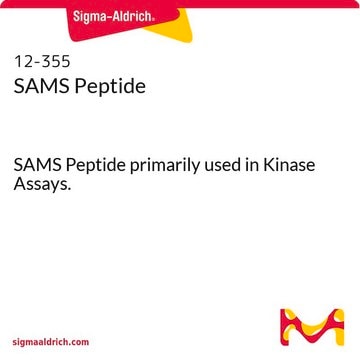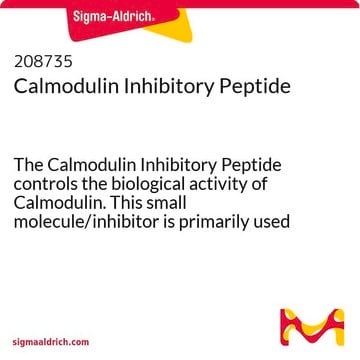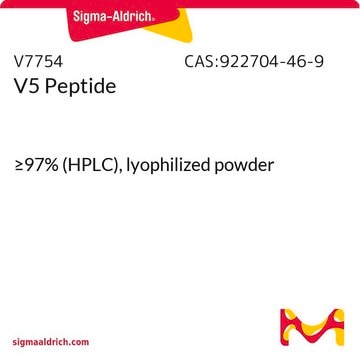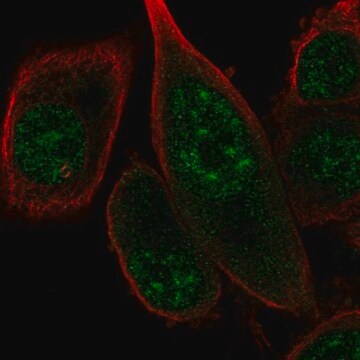208902
Calpastatin Peptide
A 27-amino acid, cell-permeable peptide encoded by exon 1B of human calpastatin that acts as a potent inhibitor of calpain I and calpain II (IC₅₀ = 20 nM for purified rabbit calpain II).
Sinónimos:
Calpastatin Peptide, CS Peptide
About This Item
Productos recomendados
Quality Level
assay
≥95% (HPLC)
form
lyophilized solid
manufacturer/tradename
Calbiochem®
storage condition
OK to freeze
desiccated (hygroscopic)
color
white
solubility
1% acetic acid: 1 mg/mL
water: 1 mg/mL
shipped in
ambient
storage temp.
−20°C
General description
Biochem/physiol Actions
calpain 2
Warning
Sequence
Physical form
Reconstitution
Other Notes
Kawasaki, J., et al. 1989. J. Biochem. 106, 274.
Maki, M., et al. 1989. J. Biol. Chem. 264, 18866.
Legal Information
Storage Class
11 - Combustible Solids
wgk_germany
WGK 1
flash_point_f
Not applicable
flash_point_c
Not applicable
Certificados de análisis (COA)
Busque Certificados de análisis (COA) introduciendo el número de lote del producto. Los números de lote se encuentran en la etiqueta del producto después de las palabras «Lot» o «Batch»
¿Ya tiene este producto?
Encuentre la documentación para los productos que ha comprado recientemente en la Biblioteca de documentos.
Contenido relacionado
Select different protease inhibitor types based on your needs to prevent protein degradation during isolation and characterization and safeguard proteins in sample prep.
Select different protease inhibitor types based on your needs to prevent protein degradation during isolation and characterization and safeguard proteins in sample prep.
Select different protease inhibitor types based on your needs to prevent protein degradation during isolation and characterization and safeguard proteins in sample prep.
Select different protease inhibitor types based on your needs to prevent protein degradation during isolation and characterization and safeguard proteins in sample prep.
Nuestro equipo de científicos tiene experiencia en todas las áreas de investigación: Ciencias de la vida, Ciencia de los materiales, Síntesis química, Cromatografía, Analítica y muchas otras.
Póngase en contacto con el Servicio técnico








